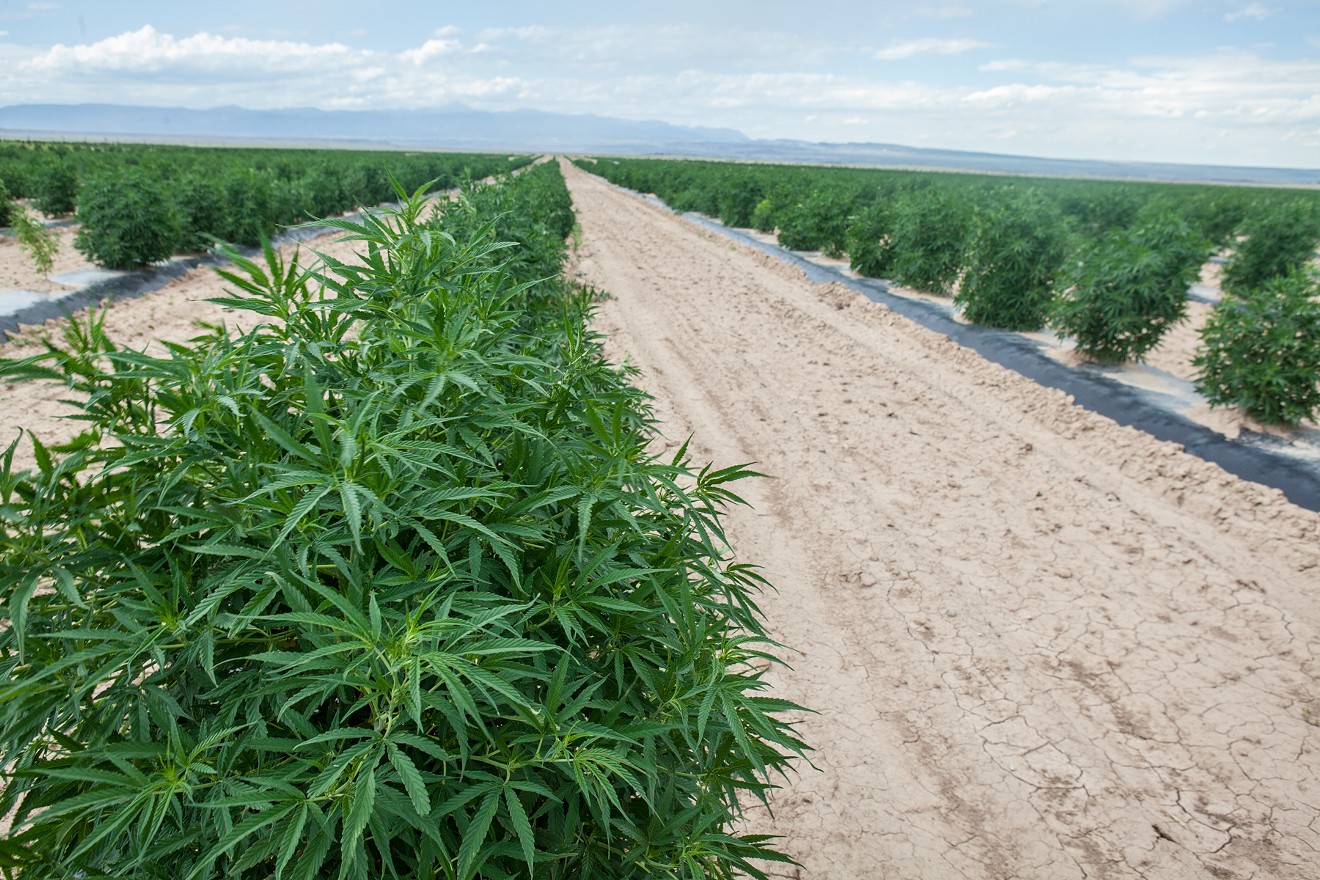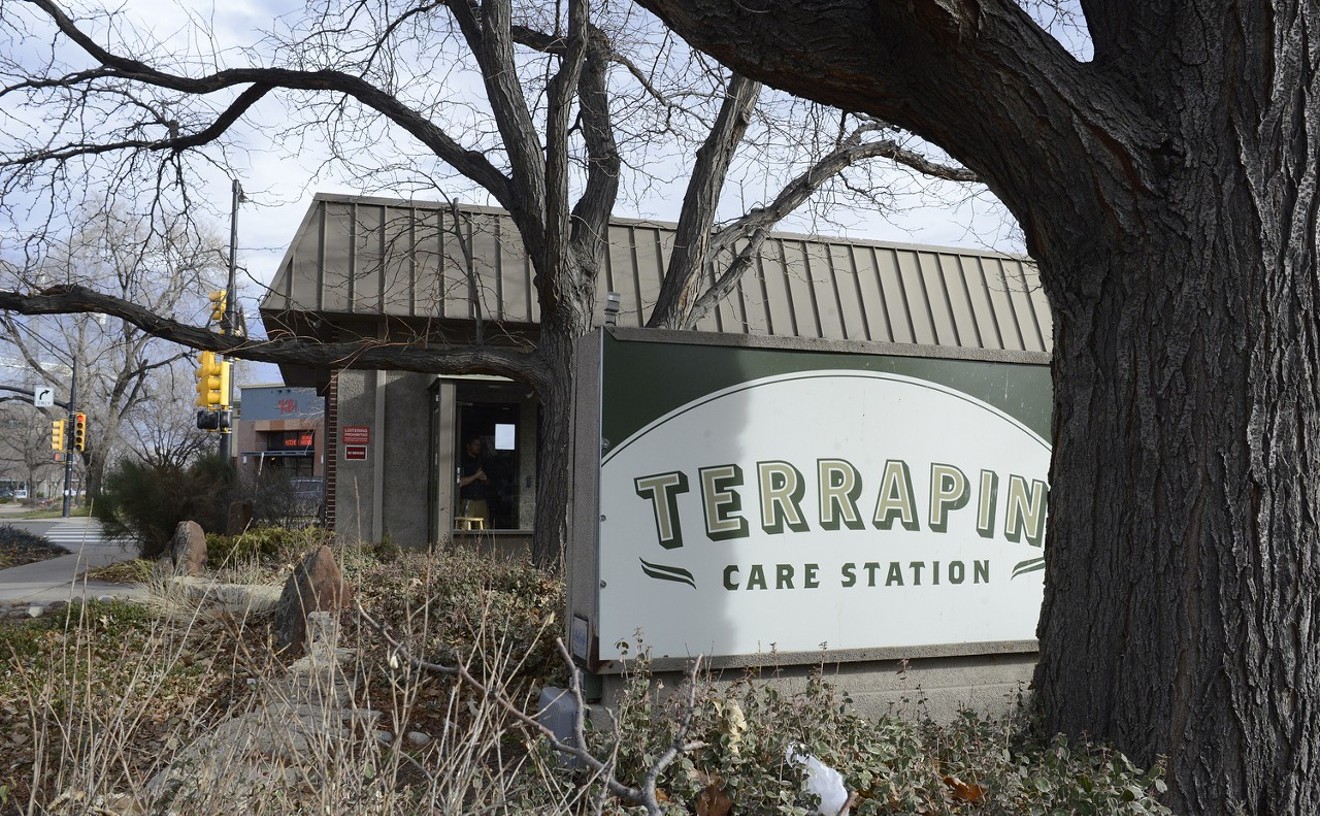Two powerful federal agencies have given some optimism to Colorado hemp farmers and CBD companies.
Late last month, the United States Department of Agriculture announced a temporary suspension of the Drug Enforcement Administration's involvement with industrial hemp testing, a factor of federal hemp regulations that worried Colorado farmers for a variety of reasons. Days later, the Food and Drug Administration announced a more collaborative approach toward future CBD regulations with stakeholders of the hemp-derived CBD industry.
Products containing industrial hemp and CBD, a derivative of hemp, have boomed in popularity over the past several years. Although industrial hemp farming and products were legalized in late 2018, the USDA released proposed regulations for hemp about a year later; the first draft mandated that every hemp farmer test their plants for THC with a laboratory certified by the DEA. Not only were farmers worried about the DEA's reputation with the cannabis plant, but there were also fears that DEA hemp testing would lead to a bottleneck because of strict harvesting deadlines and the limited amount of labs currently certified by the federal agency.
After continued criticism from farmers and state lawmakers in Colorado and other states with established hemp programs, the USDA announced a temporary suspension of the DEA requirement for hemp farmers until October 31, 2021.
“We are delaying enforcement of these requirements based on comments received in response to the interim final rule and in discussions with states and tribes as they pursue USDA approval of their plans,” the USDA explains in a written statement. “Through these conversations, we have learned that these provisions will serve as a significant hindrance to the growth of a domestic hemp market at this nascent stage. For instance, we now better understand how the limited number of DEA-registered labs will hinder testing, and better understand how the associated costs with disposing of products that contain over 0.3 percent THC could make entering the hemp market too risky.”
Among the Colorado politicians campaigning for less restrictive hemp rules was Governor Jared Polis. “Colorado is leading the way when it comes to hemp production and cultivation. I'm relieved that the USDA and Secretary Perdue are recognizing the concerns that Colorado raised in our comments on the interim final rule,” he says in a statement. “This move will help create more job opportunities, and will help our farmers and our economy.”
Previous USDA rules required that hemp farmers have their crops tested within fifteen days of harvest at a DEA-certified facility, but there are only two registered DEA labs currently listed in Colorado; there could be unlisted labs with DEA certification, but farmers estimate that only a handful exist.
“It was pretty clear that the previous rules introduced were strict,” says Katey Herland, a hemp farmer in Grand Junction. “In western Colorado, labs are harder to access and the drives were longer. And if you’re an outdoor grower, you’re still dictated by harvest season, like any other crop. There wasn’t a good understanding of hemp crops and the harvest season with the old rules.”
The sighs of relief from hemp farmers were shared by the state's CBD industry, which received its own sliver of good news from the FDA in a recent CBD rulemaking update. Although hemp is now legal, CBD is still in a gray area, because it's also produced by THC-rich marijuana, leaving CBD products currently unregulated by the FDA.
The FDA started the update with typical fist-shaking, pledging to continue monitoring the marketplace and take action against overzealous CBD claims, but there was also some cause for optimism in the announcement: "The recent FDA announcement isn't that it's issuing regulations, but a report to Congress that regulations are coming along," explains Jim Higdon, co-founder of Cornbread Hemp, a CBD oil company. "The most important aspect of the announcement is that the tone of it is more constructive and productive toward CBD products than it has been in the past."
According to Higdon, hemp's federal legalization put pressure on the FDA to speed up CBD regulations as the market continues to grow. If the FDA were to implement rules that didn't shut down the largely unregulated industry, Higdon says the industry would be able to grow more and reach more customers.
"It's hard to know where we are on this until regulations come out," he explains. "And it's hard to know what the rules are if there aren't clear rules. But clearer, more productive regulations that have the same tone as this recent announcement will allow CBD industries to grow appropriately and have a clear checklist of what to do and what not to do."
[
{
"name": "Air - MediumRectangle - Inline Content - Mobile Display Size",
"component": "12017618",
"insertPoint": "2",
"requiredCountToDisplay": "2"
},{
"name": "Editor Picks",
"component": "17242653",
"insertPoint": "4",
"requiredCountToDisplay": "1"
},{
"name": "Inline Links",
"component": "18838239",
"insertPoint": "8th",
"startingPoint": 8,
"requiredCountToDisplay": "7",
"maxInsertions": 25
},{
"name": "Air - MediumRectangle - Combo - Inline Content",
"component": "17261320",
"insertPoint": "8th",
"startingPoint": 8,
"requiredCountToDisplay": "7",
"maxInsertions": 25
},{
"name": "Inline Links",
"component": "18838239",
"insertPoint": "8th",
"startingPoint": 12,
"requiredCountToDisplay": "11",
"maxInsertions": 25
},{
"name": "Air - Leaderboard Tower - Combo - Inline Content",
"component": "17261321",
"insertPoint": "8th",
"startingPoint": 12,
"requiredCountToDisplay": "11",
"maxInsertions": 25
}
]











